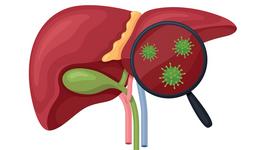Tune Therapeutics' HBV Epigenetic Silencer: Clinical Trial Programme Expands to Hong Kong
CMN Intelligence - The World’s Most Comprehensive Intelligence Platform for CRISPR-Genomic Medicine and Gene-Editing Clinical Development
Providing market intelligence, data infrastructure, analytics, and reporting services for the global gene-editing sector. Read more...
Epigenetic company Tune Therapeutics announced yesterday that Hong Kong's Department of Health has granted a Certificate for Clinical Trial for TUNE-401, the company's investigational epigenetic silencing therapy for chronic hepatitis B (CHB). This marks the second regulatory approval for TUNE-401's Phase 1b clinical trial programme, following New Zealand's authorisation in November 2024. The New Zealand trial, which is actively recruiting, will be carried out in Auckland and led by Dr. Ed Gane, Principal Investigator and Professor of Medicine at the University of Auckland, New Zealand.
Leading the Hong Kong trial is Professor Man-Fung Yuen from The University of Hong Kong and Queen Mary Hospital. As Chair Professor at The University of Hong Kong and Chief of the Division of Gastroenterology and Hepatology at Queen Mary Hospital, Yuen brings decades of expertise in hepatitis B research and treatment to the programme. His extensive work has helped to shape the current understanding of hepatitis B virus (HBV), particularly in Asian populations.
Derek Jantz, Chief Scientific Officer at Tune Therapeutics, and Professor Man-Fung Yuen shared insights with CRISPR Medicine News about the programme's potential to transform the treatment landscape for chronic HBV.
Strategic focus on regions most impacted by chronic hepatitis B
"We selected these two locations as trial sites in part because of the high prevalence of HBV in the region," explains Derek Jantz, Chief Scientific Officer at Tune Therapeutics. "More importantly, however, Dr. Yuen in Hong Kong and Dr. Gane in New Zealand are world-class clinical investigators with expertise in viral hepatitis and experience with novel therapeutic modalities. They were the obvious choices to lead TUNE-401's clinical development and we are thrilled to have them so engaged."
The expansion into Hong Kong aligns with the unique challenges of treating HBV in Asian populations. "In the Asian population with hepatitis B, the majority of the patients acquire the disease early in life, which makes disease control and/or elimination extremely difficult," notes Dr. Yuen. "We need a potent and upstream silencing agent acting against the viral genome in order to exert an adequate control of the disease to the state of gaining functional cure for our patients. Epigenetic silencing is expected to have this potential."
According to the World Health Organization, the Western Pacific Region – which includes China, Japan, Cambodia, New Zealand, and Australia – carries the highest burden of hepatitis B infection globally. By initiating trials in both Hong Kong and Auckland, Tune Therapeutics is strategically positioning its clinical programme in regions that could benefit most from new treatment options.
Novel approach to target persistent viral forms
As described in our earlier interview with Dr. Brian Cosgrove, principal scientist at Tune Therapeutics, the HBV genome is partly single- and partly double-stranded and once the virus has infected hepatocytes, the single-stranded part is 'repaired' by the host, which results in the generation of a circular, double-stranded mini-chromosome. These mini-chromosomes, also called covalently closed circular DNAs (cccDNAs), constitute a reservoir of new viral particles. Owing to a level of resistance to antiviral medications and the host immune system, these viral factories can persist for many years in patients, causing chronic HBV.
"Our hope is that this could be a 'one-and-done' functional cure for HBV infection," said Jantz. "The long-term epigenetic silencing induced by TUNE-401 might permanently inactivate the virus and untether patients from daily antiviral regimens that are the current standard of care."
Addressing treatment gaps and genetic diversity
"This therapy is expected to address the gap of the existing treatment which does not have high efficacy against immune-suppressive viral antigen, i.e., hepatitis B surface antigen," explains Dr. Yuen. "The aim of this new therapy is to allow host immune restoration to remove the need for life-long therapy with the existing treatment."
The therapeutic approach has also been designed with genetic diversity in mind. "HBV has multiple genotypes that differ significantly in their primary DNA sequence and the prevalence of the different genotypes varies by region," notes Jantz. "Because TUNE-401's mechanism of action is based on direct binding of the epigenetic silencer to a specific target site in the HBV genome, we went to great lengths to ensure that binding is maintained across the different virus genotypes. As such, we believe that TUNE-401 will maintain its antiviral activity despite regional variation in the virus genome sequence."
Novel mechanism of action and promising pre-clinical results
TUNE-401 comprises a catalytically-dead Cas9 (dCas9) fused to two effector domains – a methyltransferase and another epigenetic repressor; these work together to exploit a weakness in the epigenetic regulation of HBV.
Delivered via lipid nanoparticles, TUNE-401 contains an mRNA sequence encoding the epigenetic repressors and a guide RNA sequence targeting HBV. The target is a master controller sequence that is conserved between the integrated viral DNA and cccDNA of the virus across all known genotypes.
In November 2024, Tune presented new in vitro and in vivo data at the American Association for the Study of Liver Diseases (AASLD) conference, demonstrating near-complete (99.99%) repression of HBV RNA from cccDNA of infected primary human hepatocytes and in a ‘true infection’ FRG mouse model, after treatment with TUNE-401.
We will continue to update you on the progress of TUNE-401's clinical development programme as new details emerge.
For a complete overview of current gene editing clinical trials, check out CRISPR Medicine News' Clinical Trials Database.
To get more CRISPR Medicine News delivered to your inbox, sign up to the free weekly CMN Newsletter here.
Tags
ArticleNewsClinical News UpdatesChronic Hepatitis B, HBVEpigenome editing (e-GE)Tune Therapeutics
CLINICAL TRIALS
Sponsors:
Base Therapeutics (Shanghai) Co., Ltd.
Sponsors:
Base Therapeutics (Shanghai) Co., Ltd.







